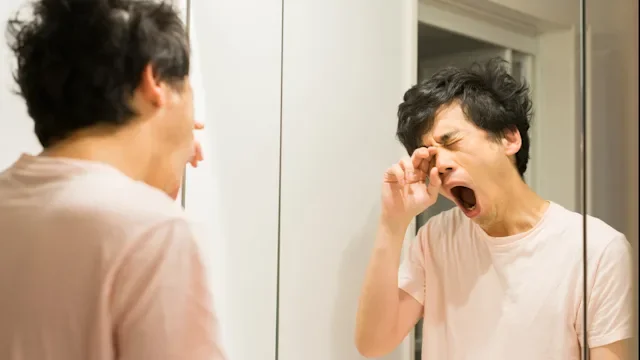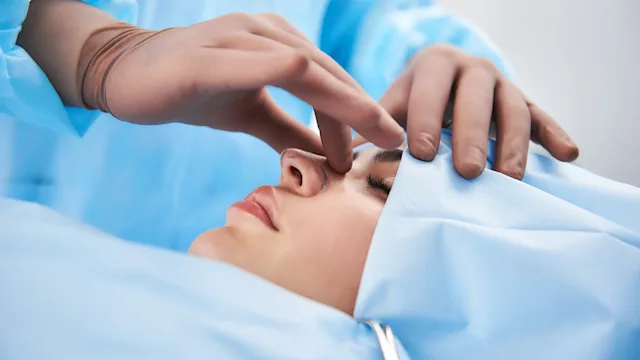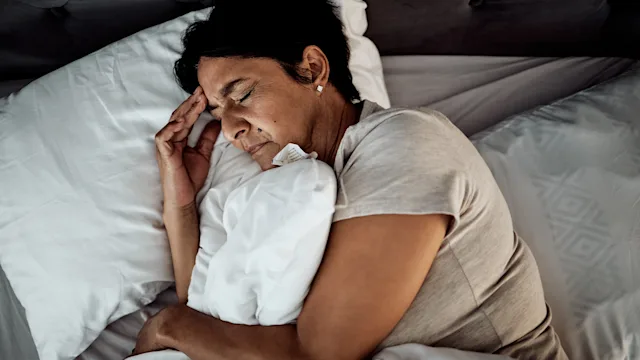Key takeaways:
A sneeze is a reflex that helps get rid of things that irritate the nasal passages.
You cycle through four stages of sleep every night. For each stage, there are different levels of connection between our nerve pathways.
Because a sneeze needs input from your senses and work from your muscles, the sneeze reflex doesn’t function when you’re asleep.
Whether it’s from allergies, dust, or the common cold, sometimes you just have to sneeze. You don’t have to think about it, and sometimes, you can’t even control it. It’s one of those body functions that can be a little embarrassing but seems to do something important.
So why don’t you sneeze when you sleep — or do you? Read on to learn more.
Why do you sneeze?
A sneeze is a reflex. This means that your body is reacting to something without having to think about it. A sneeze is a reflex response to something irritating the inside of your nasal passages. That could be something you’re allergic to, a virus, or small particles like dust.
Search and compare options
When the inside of your nose gets irritated, chemicals are released that send a message to your nerve cells. Your nerve cells then send signals to a part of your brainstem and out to the muscles of your chest, throat, and abdomen. This creates the sneeze, which helps clear out your nasal passages.
Do you sneeze during sleep?
Things can still tickle the inside of your nose when you’re asleep, right? So wouldn’t that mean that you would still sneeze when you’re asleep?
It turns out that sneezing and sleeping don’t go together. There are actually some good reasons for that, but first, let’s take a closer look at what happens when you sleep.
Your conscious mind goes offline when you sleep. But your brain is still working hard. You cycle through four stages while you sleep:
Stage 1: You transition from being awake to light sleep. Your breathing, heart rate, and brain waves slow down. But you can still wake up pretty easily during this stage.
Stage 2: Your heart rate, breathing, and brain waves slow even more. Your muscles are more relaxed.
Stage 3: Deep sleep. Everything is slowest and most relaxed. It’s hard to wake someone up from this stage of sleep.
REM sleep: Your breathing, heart rate, and blood pressure increase. Your eyes move back and forth. (That’s where the name rapid eye movement, or REM, sleep comes from.) This is the stage of sleep when you dream but your muscles can’t move. This prevents you from doing whatever is happening in your dreams.
So what does all of this have to do with sneezing? During the first three stages of sleep, your brain registers less and less input from your senses. And your muscles keep getting more relaxed. Then, during REM sleep, your muscles can’t move at all. And you spend more time in REM sleep as the night goes on.
Read more like this
Explore these related articles, suggested for readers like you.
How does your body stifle a sneeze during sleep?
If your brain responds less to nerve messages and your muscles are either relaxed or can’t move at all, your body doesn’t have everything it needs to produce a sneeze. There are also changes in the way neurotransmitters send messages between nerve cells during sleep. This changes the function of certain reflexes that aren’t needed at that time to keep you alive. Sleep is so important for your ability to function that your body puts certain mechanisms in place to protect it.
What can you do if sneezing is keeping you from getting quality sleep?
Wait a minute: What if you feel like you are sneezing in your sleep? It’s likely that you were entering the early stage of sleep, the transition between sleeping and waking. Some people with allergies, for example, do have trouble with sneezing and sleep. But it’s more likely that sneezing keeps them from falling asleep. Or a sneeze might wake them up before they have truly fallen asleep.
If you find that sneezing is keeping you from getting quality sleep, there are some things you can do to reduce your exposure to irritants:
Use air filters, especially in the area where you sleep.
Change your furnace filters.
Wash your sheets in hot water to get rid of dust mites.
Limit exposure to pet hair.
The bottom line
Sneezing serves an important function in your body. It helps clear out your nasal passages in response to some type of irritation. But this isn’t something that’s essential when you’re asleep. Because of the disconnection between your senses, muscles, and brain while you sleep, a sneeze isn’t something that should interrupt your sleep.

Why trust our experts?


References
Brinkman, J., et al. (2021). Physiology of sleep. StatPearls.
Fischer, D. B., et al. (2015). What is a reflex? A guide for understanding disorders of consciousness. Neurology.
Georgeson, P. (2000). Why do we sneeze? Scientific American.
Li, F., et al. (2021). Sneezing reflex is mediated by a peptidergic pathway from nose to brainstem. Cell.
Liu, J., et al. (2020). The association between allergic rhinitis and sleep: A systematic review and meta-analysis of observational studies. PLOS ONE.
MedlinePlus. (2020). Sneezing.
National Institute of Neurological Disorders and Stroke. (2022). Brain basics: Understanding sleep.
Patel, A. K., et al. (2022). Physiology, sleep stages. StatPearls.
Queensland Health. (2020). Sneezing 101 - What is a sneeze, why do we sneeze and how to sneeze safely.
Seijo-Martínez, M., et al. (2006). Sneeze related area in the medulla: Localisation of the human sneezing centre? Journal of Neurology, Neurosurgery and Psychiatry.
Siegel, J. M. (2005). Clues to the functions of mammalian sleep. Nature.

















